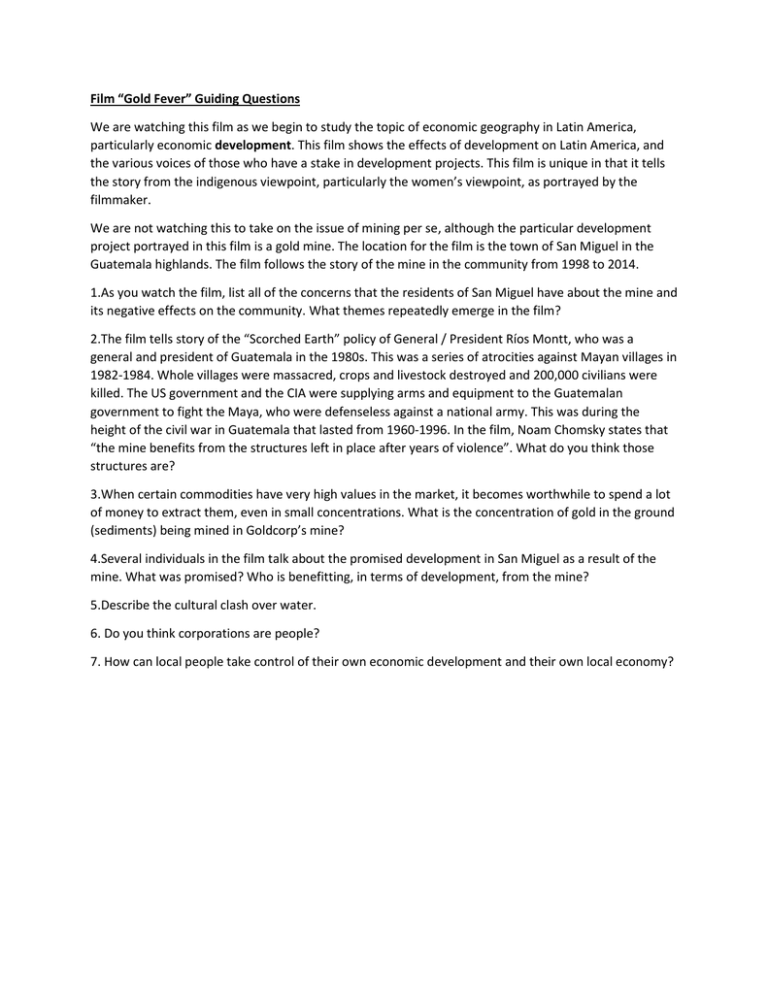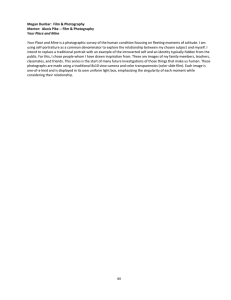Film “Gold Fever” Guiding Questions development
advertisement

Film “Gold Fever” Guiding Questions We are watching this film as we begin to study the topic of economic geography in Latin America, particularly economic development. This film shows the effects of development on Latin America, and the various voices of those who have a stake in development projects. This film is unique in that it tells the story from the indigenous viewpoint, particularly the women’s viewpoint, as portrayed by the filmmaker. We are not watching this to take on the issue of mining per se, although the particular development project portrayed in this film is a gold mine. The location for the film is the town of San Miguel in the Guatemala highlands. The film follows the story of the mine in the community from 1998 to 2014. 1.As you watch the film, list all of the concerns that the residents of San Miguel have about the mine and its negative effects on the community. What themes repeatedly emerge in the film? 2.The film tells story of the “Scorched Earth” policy of General / President Ríos Montt, who was a general and president of Guatemala in the 1980s. This was a series of atrocities against Mayan villages in 1982-1984. Whole villages were massacred, crops and livestock destroyed and 200,000 civilians were killed. The US government and the CIA were supplying arms and equipment to the Guatemalan government to fight the Maya, who were defenseless against a national army. This was during the height of the civil war in Guatemala that lasted from 1960-1996. In the film, Noam Chomsky states that “the mine benefits from the structures left in place after years of violence”. What do you think those structures are? 3.When certain commodities have very high values in the market, it becomes worthwhile to spend a lot of money to extract them, even in small concentrations. What is the concentration of gold in the ground (sediments) being mined in Goldcorp’s mine? 4.Several individuals in the film talk about the promised development in San Miguel as a result of the mine. What was promised? Who is benefitting, in terms of development, from the mine? 5.Describe the cultural clash over water. 6. Do you think corporations are people? 7. How can local people take control of their own economic development and their own local economy?

